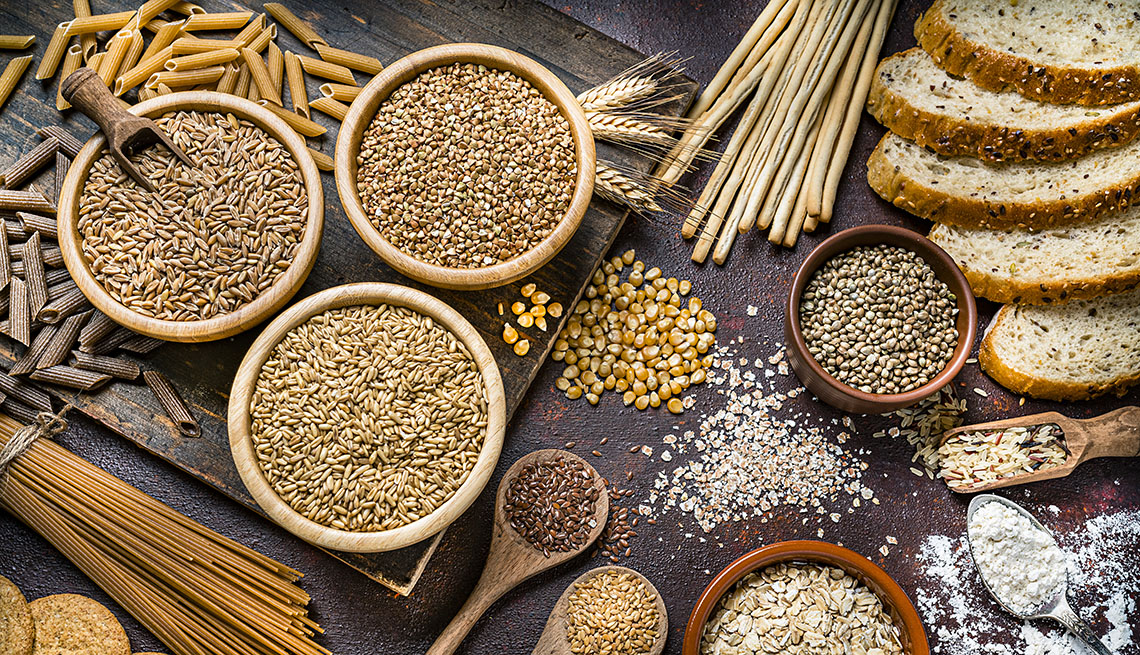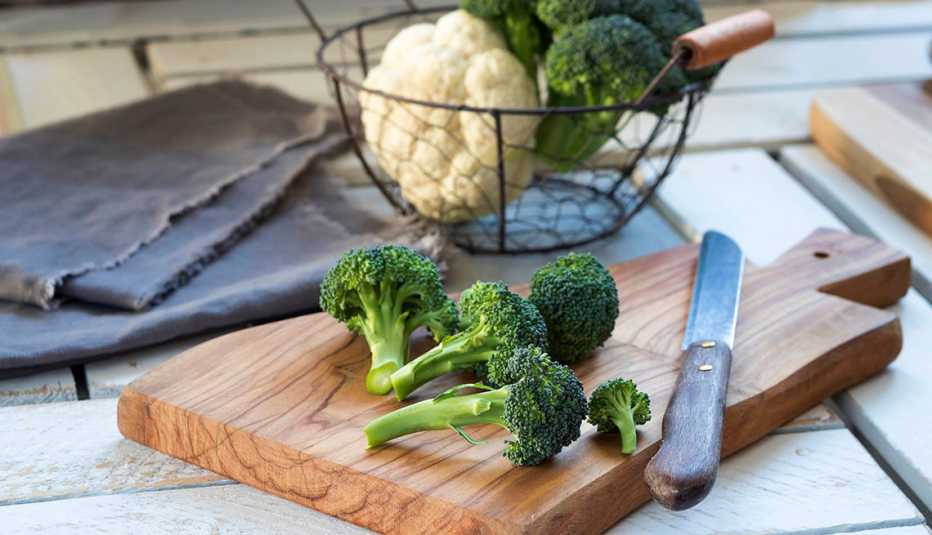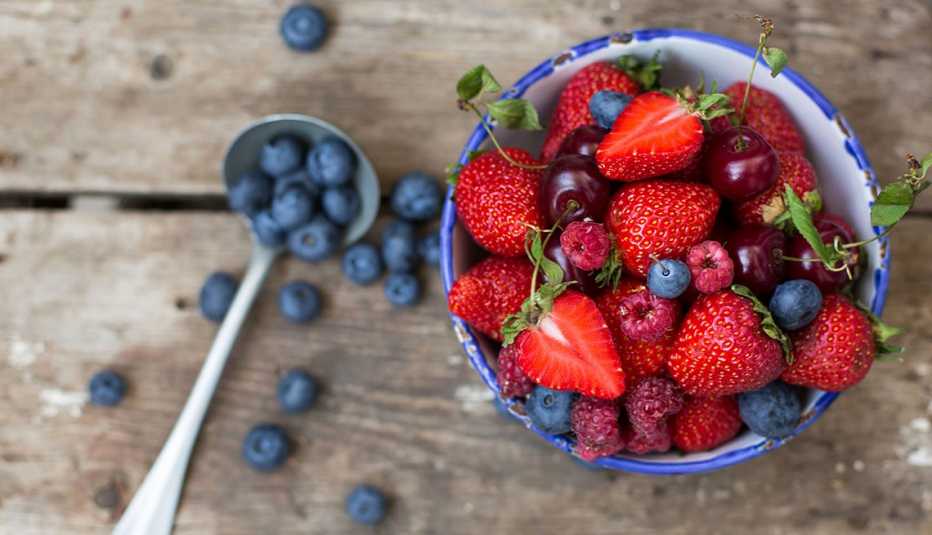AARP Hearing Center
You can believe in the power of superfoods — to help you live longer, lose weight, manage type 2 diabetes and stave off cardiovascular disease — and still question whether any green or grain is super enough to reduce your risk for cancer. After all, the science on the cancer-preventing powers of specific foods is ongoing.
But this much is clear: Regularly filling your plate with foods that protect your immune system, support a healthy weight, reduce inflammation and promote gut health can help reduce your risk for cancer, according to the American Cancer Society. Further, not doing so comes at a price. One study published in 2019 in JNCI Cancer Spectrum suggests that a poor diet — meaning one that skimps on fruits, vegetables, whole grains and dairy and goes heavy on red meat and processed foods — may account for more than 5 percent of new invasive cancers in adults in the U.S.
“There are not specific foods that have been shown to prevent cancer, but there are eating habits over a long period of time that have been shown to help reduce the risk of developing cancer,” says Stacy Kennedy, a registered dietitian and board certified specialist in oncology nutrition in Wellesley, Massachusetts.
She compares the impact of healthy eating habits to regular exercise. “We know that physical activity can help support a healthy weight and help reduce the risk for cancer, but we don’t generally call out one specific form of exercise as being advantageous over another. There are a lot of forms of exercise that would be helpful because they all fall under that umbrella of physical activity.” Same goes with the superfoods that land under the umbrella of healthy eating habits. “It’s that healthy pattern that helps [reduce the risk for cancer] more than specific foods,” Kennedy says.
With that in mind, here are seven standout superfoods that should be a part of any cancer-preventing eating plan.
1. Pulses (beans, peas, lentils)
You know a food has true superpowers when it appears on virtually every nutritionist’s must-eat list. In a report published in 2020 in The Journal of Nutrition, the World Cancer Research Fund and the American Institute for Cancer Research (AICR) recommend following a diet that provides at least 30 grams of fiber per day; five or more servings a day of plant foods; and whole grains, nonstarchy vegetables, fruit and pulses at most meals.
The beans, peas, chickpeas and lentils — collectively known as pulses, or legumes — check all those boxes. “This food group holds its status as a superfood for more than just one reason,” says Kristin Kirkpatrick, a registered dietitian at the Cleveland Clinic. “Legumes are low in fat and high in protein. They’re also high in insoluble fiber, which aids in digestion and an overall healthy gut.” Research also suggests that eating plant-based foods rich in fiber can reduce the risk of colorectal cancer.






































































